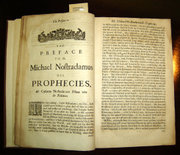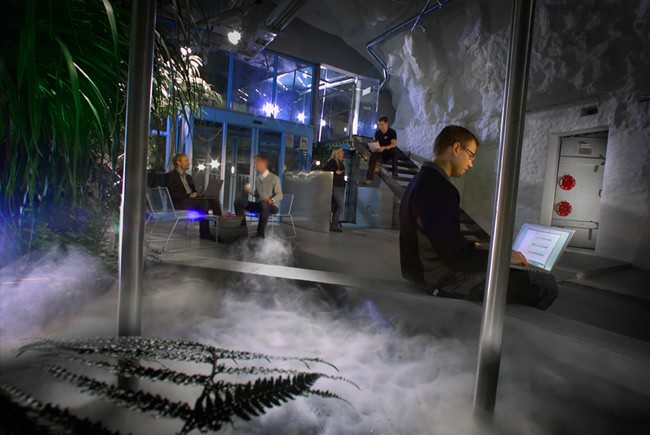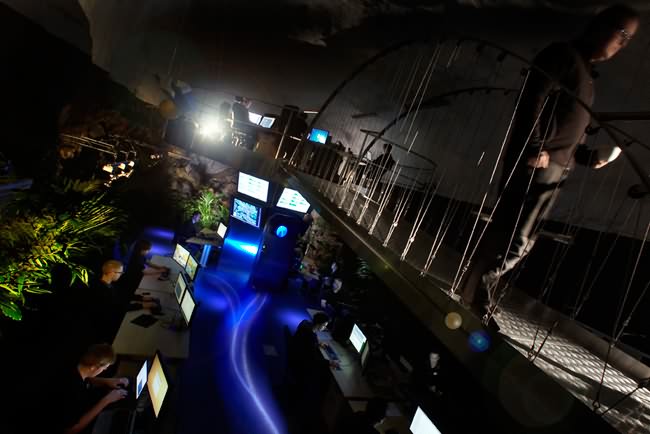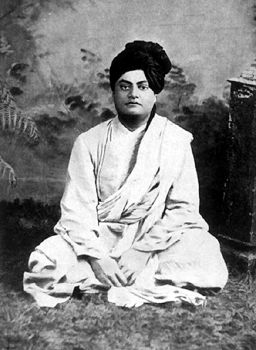Nostradamus, (December 14, 1503 – July 1, 1566) bornMichel de Nostredame, is one of the world's most famous authors of prophecies. He is most famous for his book Les Propheties, which consists of rhymed quatrains (4-line poems) grouped into sets of 100, called Centuries.
Nostradamus enthusiasts have credited him with predicting a copious number of events in world history, including the French Revolution, the atom bomb, the rise of Adolf Hitler and the September 11 attacks on the World Trade Center. Detractors, however, see such predictions as examples of vaticinium ex eventu, retroactive clairvoyance and selective thinking, which find non-existent patterns in ambiguous statements. Because of this, it has been claimed that Nostradamus is "100% accurate at predicting eventsafter they happen".
Biography
Born in Saint-Rémy-de-Provence in the south of France in December 1503, Michel de Nostredame was the son of a grain dealer who was also a prosperous home-grown notary. His family was originally Jewish, but had converted to Catholicism during the previous century. Nothing is known about his childhood, but at the age of fifteen he entered the University of Avignon to study for his baccalaureate. After little more than a year he was forced by the Plague to leave again. In 1529, after some years as an apothecary, he entered the University of Montpellier to study for a doctorate in medicine, but was promptly expelled again when it was discovered that he had been an apothecary, which was a 'manual' trade expressly banned by the university statutes. He then continued work as an apothecary, and created a "rose pill" that was widely believed to protect against the the plague.
In 1531 he was invited by Jules-César Scaliger, a leading Renaissance man, to come to Agen. There Nostradamus married a woman whose name is still in dispute (possibly Henriette d'Encausse), but who bore him two children. In 1534, however, his wife and children died, presumably from the plague. After their death he continued to travel, passing through France and possibly Italy.
He settled down in 1547 in Salon-de-Provence, where he married a rich widow named Anne Ponsarde Gemelle and eventually had six children - three daughters and three sons. After a further visit to Italy, he began to move away from medicine and towards the occult. He wrote an almanac for 1550, for the first time Latinising his name to 'Nostradamus', and was so encouraged by its success that he decided to write one or more annually. Taken together, they are known to have contained at least 6338 prophecies (most of them, in the event, failed predictions), as well as at least 11 annual calendars, all of them starting on 1st January and not, as is sometimes supposed, in March. He then began his project of writing 1,000 quatrains, which form the supposed prophecies for which he is famous today. Feeling vulnerable to religious fanatics, however, he devised a method of obscuring his meaning by using "Virgilianised" syntax, word games and a mixture of languages such as Provençal, Greek, Latin and Italian. For technical reasons connected with their publication in three instalments, the last 58 quatrains of the seventh 'Century', or book of 100 verses, were never published.
The quatrains, written in a book titled "Les Propheties", received a mixed reaction when they were published. Some people thought Nostradamus was a servant of evil, a fake, or insane, while many of the elite thought his quatrains were spiritually inspired prophecies. Soon nobility came from all over to receive horoscopes and advice from him, though he normally expected them to supply the birthcharts on which they were based. Catherine de Médicis, the queen consort of King Henry II of France, was one of Nostradamus' admirers. After reading his almanacs for 1555, which hinted at unnamed threats to the royal family, she summoned him to Paris to explain them, as well as to draw up horoscopes for her royal children. At the time he feared that he would be beheaded, but by the time of his death in 1566, she had made him Counselor and Physician in Ordinary to the King.
By 1566 Nostradamus's gout, which had painfully plagued him for many years and made movement very difficult, finally turned into dropsy. At the beginning of July, after making an extended will and a much shorter codicil, he is alleged to have told his secretary Jean de Chavigny, "You will not find me alive by sunrise." The next morning he was reportedly found dead, lying on the floor between his bed and a makeshift bench.
Some biographical accounts of Nostradamus' life state that he was afraid of being persecuted for heresy by the Inquisition, but neither prophecy nor astrology fell under this bracket, and he would have been in danger only if he had practised magic to support them. In fact, his relations with the Church as a prophet and healer were always excellent. His brief imprisonment at Marignane in late 1561 came about purely because he had published his 1562 almanac without the prior permission of a bishop, contrary to a recent royal decree.
Preparation and methods of prophecy
While Nostradamus was clearly familiar with recent Latin printed editions of a range of esoteric writings, as well as having a passing acquaintance with astrology, recent research has shown that most of his prophetic work was based on paraphrasing collections of ancient end-of-the-world prophecies (mainly Bible-based) and supplementing their insights by projecting known historical events and identifiable anthologies of omen-reports into the future. It is thanks to this that his work contains so many predictions involving ancient figures such as Sulla, Marius, Nero, Hannibal and so on, as well as descriptions of "battles in the clouds" and "frogs falling from the sky". The end of the world, after all, was confidently expected at the time to occur in either 1800 or 1887, or possibly in 2242, depending on the system adopted.
His historical sources include easily identifiable passages from Livy, Suetonius, Plutarch and a range of other classical historians, as well as from the chronicles of medieval authors such as Villehardouin and Froissart. Many of his astrological references, by contrast, are taken almost word-for-word from the Livre de l'estat et mutations des temps of 1549/50 by Richard Roussat. Even the planetary tables on which he based such birthcarts as he was unable to avoid preparing himself are easily identifiable by their detailed figures, even where (as is usually the case) he gets some of them wrong.
His major prophetic source was evidently the Mirabilis liber of 1522, which contained a range of prophecies by Pseudo-Methodius, the Tiburtine Sibyl, Joachim of Fiore, Savonarola and others (his Preface contains no less than 24 biblical quotations, all but two of them in exactly the same order as Savonarola). Further material was gleaned from Petrus Crinitus's De honesta disciplina of 1504, which included extracts from Psellus's De daemonibus and the De Mysteriis Aegyptiorum..." (Concerning the mysteries of Egypt...), a book on Chaldean and Assyrian magic by Iamblichus, a 4th?century neo-Platonist. Latin versions of both had recently been published in Lyon.
While it is true that Nostradamus claimed in 1555 to have burned all the occult works in his library, no one can say exactly what books were destroyed in this fire. The fact that they reportedly burned with an unnaturally brilliant flame suggests, however, that some of them were manuscripts on vellum, which was routinely treated with saltpetre.
Given that his methodology, clearly, was mainly literary, it is doubtful whether Nostradamus used any particular methods for entering a trance state, other than contemplation, meditation and incubation (i.e. ritually 'sleeping on it'). His sole description of this process is contained in letter 41 of his collected Latin correspondence, as republished by Jean Dupèbe. The popular legend that he attempted the ancient methods of flame gazing, water gazing or both simultaneously is based on an uninformed reading of his first two verses, which merely liken his own efforts to those of the Delphic and Branchidic oracles. In his dedication to King Henri II Nostradamus describes "emptying my soul, mind and heart of all care, worry and unease through mental calm and tranquility", but his frequent references to the "bronze tripod" of the Delphic rite are usually preceded by the words "as though".
His works

A copy of his
Propheciesdated 1672, located at The P.I. Nixon Medical History Library of The University of Texas Health Science Center at San Antonio.
The Prophecies - In this book he collected his major, long-term divinations. The first edition was published in 1555. The second, with 289 further prophetic verses, was printed in 1557. The third edition, with three hundred new quatrains, was reportedly printed in 1558, but nowadays only survives as part of the omnibus edition that was published after his death in 1568. Thanks to printing practices at the time, no two editions turned out to be identical, and it is relatively rare to find even twocopies exactly the same.
The Almanacs - By far the most popular of his works, these were published annually from 1550 until his death. Often he published two or even three in a single year, entitled eitherAlmanachs (detailed predictions), Prognostications or Presages(more generalised predictions).
Nostradamus was not only a diviner, but a professional healer, too. We know that he wrote at least two books on medical science. One contained an alleged "translation" of Galen, and in his so-called Traité des fardemens (basically, a medical cookbook containing, once again, materials borrowed mainly from others) he included a description of the methods he used to treat the plague - none of which (not even the blood-letting) apparently worked. The same book also describes the preparation of cosmetics.
A manuscript normally known as the "Orus Apollo" also exists in the Lyon municipal library, where upwards of 2000 original documents relating to Nostradamus are stored under the aegis of Michel Chomarat. It is a purported translation of an ancient Greek work on Egyptian hieroglyphs based on later, Latin versions, all of them unfortunately ignorant of the true meanings of the ancient Egyptian script, which was not in fact deciphered until the advent of Champollion in the 19th century.
Skepticism
Skeptics of Nostradamus state that his reputation as a prophet is largely manufactured by modern-day supporters who shoehorn his words into events that have either already occurred or are so imminent as to be inevitable, a process known as as "retroactive clairvoyance". No Nostradamus quatrain has been interpreted beforea specific event occurs, beyond a very general level (e.g., a fire will occur, a war will start).
A good demonstration of this flexible predicting is to take lyrics written by modern songwriters (e.g., Bob Dylan) and show that they are equally "prophetic".
Some scholars believe that Nostradamus wrote not to be a prophet, but to comment on events that were happening in his own time, writing in his elusive way - using highly metaphorical and cryptic language - in order to avoid persecution. This is similar to the Preterite interpretation of the Book of Revelation; John the Apostle intended to write only about contemporary events, but over time his writings became seen as prophecies.
The well-known prophecy that "a great and terrifying leader would come out of the sky" in 1999 and 7 months "to resuscitate the great King from Angoumois" has been much over-stated. The phrase d'effraieur (of terror) in fact occurs nowhere in the original printing, which merely uses the word deffraieur (defraying, hosting). On the basis of Nostradamus's by-now well known technique of projecting past events into the future, it therefore evidently refers back to the restoration to health of the captive Francis I of France (who was Duke of Angoulême) following a surprise visit to his cell by his host, the then Holy Roman Emperor Charles V in 1525. No less than five of the planets were in the same signs on both occasions.
The bulk of the quatrains deal with disasters of various sorts. The disasters include plagues, earthquakes, wars, floods, invasions, murders, droughts, battles and many other themes. Some quatrains cover these in over-all terms; others concern a single person or small group of persons. Some cover a single town, others several towns in several countries. All of them are presented in the context of the supposedly imminent end of the world – a conviction that sparked numerous collections of end-time prophecies at the time, not least an unpublished collection by Christopher Columbus.
Misquotes and Hoaxes
Nostradamus' writings have frequently been misquoted and, in some instances, even deliberately altered in order to "prove" that he supposedly predicted various events – especially the most recent and dramatic ones. There is a persistent tendency to claim that 'Nostradamus predicted whatever has just happened'. Since the advent of the Internet, many prophecies have even been fabricated outright, therefore enhancing the mystique of Nostradamus. For example, after the September 11 Terrorist Attacks, the following was circulated on the Internet along with many more elaborate variants:
- In the City of God there will be a great thunder,
- Two brothers torn apart by Chaos,
- while the fortress endures,
- the great leader will succumb,
- The third big war will begin when the big city is burning
As it turns out, the first four lines were indeed written before the attacks, but by a Canadian graduate student named Neil Marshall as part of a research paper in 1997. Ironically enough, the research paper included this poem as an illustrative example of how the validity of prophecies is often exaggerated. For example, the "City of God" (why is New York City the City of God?), "great thunder" (could apply to just about any disaster), "Two brothers" (lots of things come in pairs), and "the great leader will succumb" phrases are so ambiguous as to be meaningless. The fifth line was added by an anonymous Internet user, showing obvious alteration since Nostradamus wrote his Propheties in four-line verses called quatrains. Nostradamus also never actually referred to a "third big war".
Sometimes, though, the hoaxes are tongue-in-cheek:
- Come the millennium, month 12
- In the home of greatest power,
- The village idiot will come forth
- To be acclaimed the leader.
This was supposed, of course, to refer to the election of George W. Bush as President of the United States.
To verify the authenticity of a purported Nostradamus quatrain, compare the identifying number (e.g.: C1, Q25 or 'I.25' means Century 1, Quatrain 25) against an authoritative version of Nostradamus's works, which will likely also contain the original old French – or click on the appropriate link below to see facsimiles of the originals. Even the Preface and the Epistle to Henri II have been assigned numbers (e.g. PF50, EP102).
Nostradamus in popular culture
Television
The television series Alias prominently features the character Milo Rambaldi, a fictional Nostradamus-like prophet. In the science fiction series First Wave, the protagonists use the quatrains of Nostradamus to fight back against an alien invasion. Nostradamus has also been parodied on Comedy Central's Chappelle's Show.
Film
He is the subject of many films and videos, including:
- Nostradamus: The Man Who Saw Tomorrow at the Internet Movie Database (1981)
- Nostradamus at the Internet Movie Database (2000)
- Nostradamus at the Internet Movie Database (1994) Depicts Nostradamus's rise in influence, because of success in treating plague and his predictions, culminating in his appointment as court physician to Charles IX of France.
None of them can be regarded as factual or reliable, though.
Music
Composer Robert Steadman has twice used Nostradamus' prophecies in pieces of music: in the 1987's quatrains by Nostradamus were juxtaposed with the Latin Requiem Mass text and poems on environmental issues. And in 1999, he set what was thought by some to be Nostradamus's prediction of the end of the world for soprano and chamber ensemble in The Final Prophecy.
In 2005, Dutch band Kayak released a rock opera called Nostradamus - Fate of Man. English singer/songwriter Al Stewart wrote a song called "Nostradamus", concerning the prophecies, for his 1973 album Past, Present, and Future.
Comics
In an Italian Mickey Mouse story, Mickey and Goofy travel back in time and by accident a young boy followed them back to the present. The boy had to go back to his own time and his memory of the future was erased, but before that he grabbed pieces of books. The boy of course became Nostradamus and the ripped pages from books explained his visions of the future. The story was made by Massimo Marconi and Massimo De Vita.
A Phantom story from 1983 by Ulf Granberg and Jaime Vallvé featured an appearance by Nostradamus.
In the DC Comics Universe, Nostradamus was an ancestor of Zatara and Zatanna.











 Swami Vivekananda, the great soul of humanity was born at 6:33, a few minutes before sunrise, on Monday, January 12,1863. It was the day of the great Hindu festival Makarasamkranti, (Makara Sankranti) when special worship is offered to the Ganga by millions of devotees.
Swami Vivekananda, the great soul of humanity was born at 6:33, a few minutes before sunrise, on Monday, January 12,1863. It was the day of the great Hindu festival Makarasamkranti, (Makara Sankranti) when special worship is offered to the Ganga by millions of devotees.